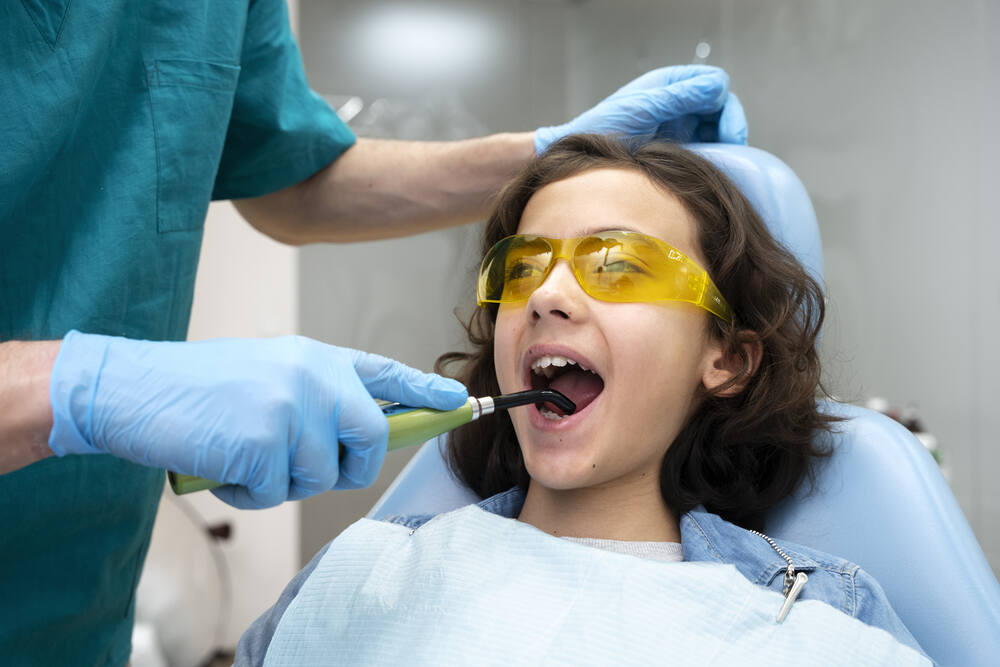Children should develop dental habits early on and maintain routine dental checkups. These proactive measures will pave the way for a lifelong of healthy teeth and gums. This article will address the most asked questions about children’s dental health and pediatric dentist near you.
1. When do baby (primary) teeth erupt?
You may be surprised to learn that a child’s baby teeth develop under their gums during week six of pregnancy. By the fourth month of pregnancy, the baby’s teeth begin to develop within the jawbones. Once your child is between four to six months of age, their first teeth will erupt, which are the central incisors- the bottom front teeth.
2. When will my child’s adult (permanent) teeth erupt?
The six-year-old- molars are the first adult teeth to erupt. These come in at the age of six, hence the name. During this time, your child will not lose their baby molars, as the six-year-old molars will erupt behind them.
3. When should my child’s first dental visit occur?
A child’s first dental visit is of paramount importance; it allows our dentist to examine their oral cavity and provide recommendations. Your child’s first dental cleaning at our dental clinic in Waterloo should be scheduled when they are three years old. We recommend this age because all their primary teeth have grown in. Additionally, they are more willing to follow directions and sit in our dentist’s chair. With that said, children that are one year old can be seen by our dentist.
4. How does the fluoride in tap water differ from the fluoride in toothpaste?
Systemic fluoride and topical fluoride are the two different types of fluoride. We receive systemic fluoride from drinking water. We call this type of fluoride systemic because it goes through your system. The majority of cities have fluoridated water, which assists in the development of adult teeth. Topical fluoride, on the other hand, is a type of fluoride you would receive from using certain products such as toothpaste and mouthwash. During an appointment at our dental clinic in Waterloo, topical fluoride may also be applied to your child’s teeth to strengthen their enamel.
5. Why do dentists in Waterloo recommend children use fluoride toothpaste?
Fluoride toothpaste is recommended to children once they are old enough to spit it out after brushing rather than swallowing it. On average, children have this ability once they are three years old; however, it is case by case.
6. Do baby teeth need to be flossed?
Most definitely. Although your child’s baby teeth may have spaces between them, flossing early on will normalize healthy behaviour.
7. Is it possible that my child might be grinding their teeth?
Yes, bruxism does not only affect adults. This is a common and normal occurrence. Note teeth grinding in children is not stress-related. So why do children grind their teeth? Children’s teeth are quite flat; this means a child may naturally grind their teeth if they do not have adult surfaces that fit together and prevent that grinding motion. Teeth grinding in children is not a TMJ disorder and will not require a night guard. Generally, it will dissipate once their permanent molars have developed.
8. When should my child transition from a bottle to a cup?
Once your child turns one, they should begin drinking from a cup.
9. Can my child have milk or juice before bed?
Milk or juice should be given to children during the day rather than before bed as this increases their risk of developing tooth decay.
Interested in children’s dentistry near you? Contact Harmony Dental today!

